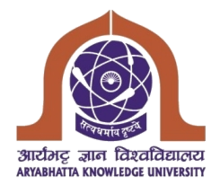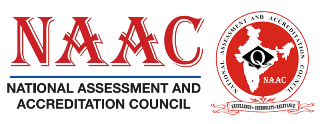Bachelor of Education (B.Ed.) & Bachelor of Computer Application (B.C.A.)
Maitreya College of Education and Management, Hajipur
Programme Objectives
B.Ed. Programme
The Bachelor of Education programme aims to:
- Cultivate knowledge and teaching skills with a focus on value-based education aligned with the contemporary educational system.
- Nurture an understanding of the teacher’s role in the socio-cultural, political, and educational context.
- Acquire knowledge of procedures and techniques of evaluation and their classroom applications.
- Develop skills to address learners’ problems through individual care and guidance.
- Master the art and skills of effective teaching.
- Foster a professional attitude towards teaching and lifelong learning.
- Gain an understanding of school management and administration in practice.
B.C.A. Programme
The Bachelor of Computer Application programme aims to:
- Provide a strong academic foundation in computer science and applications.
- Develop programming, software development, and IT skills to meet industry requirements.
- Cultivate analytical, problem-solving, and logical reasoning abilities through computer-based learning.
- Enhance practical exposure through laboratory work, projects, and internships.
- Equip students with professional and communication skills for IT careers and entrepreneurship.
- Build awareness of ethical, social, and environmental responsibilities in the use of technology.
Programme Duration
- B.Ed. Programme: Two academic years.
- B.C.A. Programme: Three academic years.
Intake Capacity & Eligibility
B.Ed. Programme
- Intake: 100 students (2 sections of 50 each).
- Student–Teacher Ratio: Not more than 25 students per teacher for methods/practical courses.
- Eligibility:
- Minimum 50% marks in Bachelor’s Degree and/or Master’s Degree in Arts, Science, Commerce, Home Science, Agriculture, Computer Science, IT, or Engineering.
- Qualification must be from a recognized Statutory University, Agricultural University, Open University, Deemed University, or equivalent institution.
- Reservation: As per Government of Bihar norms.
B.C.A. Programme
- Intake: 100 students (as per university norms).
- Eligibility:
- Passed 10+2 (Intermediate) examination with at least 45% marks in any stream (Arts/Science/Commerce) with Mathematics as a subject at 10+2 level.
- Candidates from recognized Boards (State Board/CBSE/ICSE or equivalent) are eligible.
Course Fee:
Medium of Instruction- Hindi and English.
Programme Structure- Syllabus
The programme is essentially a judicious mix of theory and practical courses to develop knowledge, skills and attitude in practising teachers. Illustrations and cases of relevant situations and activities comprise the core of each course. These are suitably supported by theoretical aspects to the extent needed. Keeping this in view, the programme consists of the following four groups of courses:
Group A : Core Courses
Group B : Content-based Methodology Courses
Group C : Special Courses
Group D : Practice Teaching
Download complete syllabus here
| AKU BEd Syllabus |
| AKU BCA Syllabus |
Attendance Policy-
Every student has to mandatorily maintain 80 % of attendance. Any student who fails to maintain the minimum required attendance shall not be allowed to take examinations conducted by MCEM.
Academic Calendar
Periodical Evaluation and Examination-
MCEM shall conduct an evaluation test in each subject for every academic year.
Award of Degree-
Every student-teacher shall be awarded B.Ed. Degree by the Aryabhatta Knowledge University, Patna on successful completion of the Course
B.Ed. PROGRAMME POs AND CLOs
PROGRAMME LEARNING OUTCOMES (PLOs):
- To impart relevant knowledge with respect to foundation and methodology courses.
- To understand the paradigm shift in conceptualizing disciplinary knowledge in school curriculum.
- To analyze the content, text books and syllabus.
- To impart teaching skills and strategies to transfer the given content suitably in classroom situations.
- To innovate and experiment classroom practices.
- To imbibe and uphold qualities of a good teacher.
- To show love and respect to the individuality of the child.
- To inspire and professionally help the parents for the care and guidance of their wards.
- To preserve proper balance of his/her life as a person of character and be an example to others with his/her intellectual honesty and moral integrity as well as loyalty to the institution to which he /she belongs to develop professional attitude, to help demonstrate commitment to values such as loyalty, love, service, equality and excellence.
- To understand different values such as morality, social service and accept responsibility for the society.
- To create leaders in all walks of life and thus be agents of change in the society by breaking the fetters of all social evils for the betterment of the people of our country and for a better world.
- To boost confidence and promote abilities to communicate effectively.
- To plan, teach, organize school related /community based activities and programmes.
- To collaborate with parents and community for the betterment of students.
COURSE LEARNING OUTCOMES (CLOs):
- Childhood & Adolescence
- Understanding of Educational Technology
- Language Across the School Curriculum
- Understanding Discipline and Pedagogy: Language, Social Science, Sciences, Mathematics, Commerce
- ICT Basics
- Learning, Teaching & Assessment
- Knowledge & Curriculum
- Contemporary Education in India
- Techniques, Methods & Approaches of Pedagogy
- Understanding Self, Personality & Yoga
- Inclusive Education
- Educational Evaluation
- Guidance & Counseling
- Value Education
- Health & Physical Education etc.


